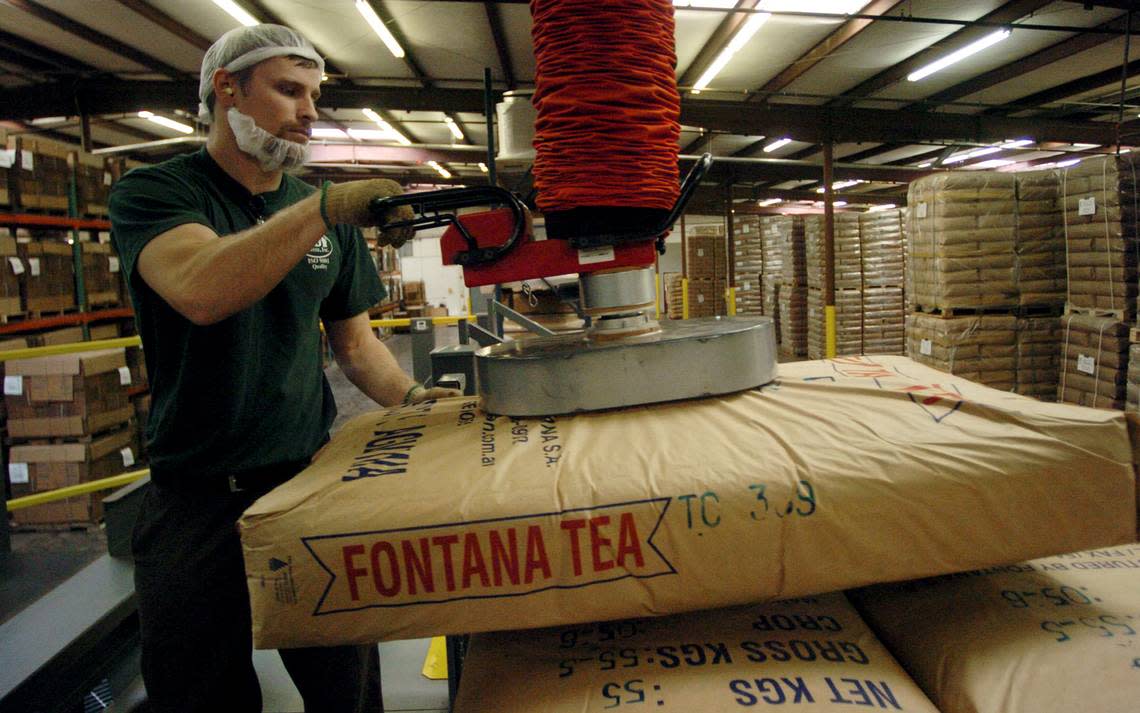Conduent, S&D Coffee end hiring agreements with NC, citing the pandemic’s effects
COVID-19 may no longer be upending daily life, but changes brought about by the pandemic — like the embrace of remote work — appears to be preventing some companies from achieving their job commitments in North Carolina.
On Tuesday, the state’s Economic Investment Committee (EIC) voted to terminate the incentive packages for two businesses, both of which cited the pandemic as a key hindrance to fulfilling their original employment promises.
The first vote ended a $2.1 million grant for the business services company Conduent to create around 200 jobs at a research hub in Morrisville. Conduent, a New Jersey-based public company which spun off from Xerox early in 2017, was slated to receive most of this grant money itself through payroll tax rebates as long as it met annual hiring and investment targets.
But since the state awarded this grant in 2017, changes to the economy and office routines have impacted Conduent considerably.
Only two months after receiving the grant, Conduent announced it would cut 267 jobs in Raleigh. Another round of layoffs followed the next year in Charlotte. As for the Morrisville facility, Conduent’s vice president of tax operations Keith Kruger wrote in a letter to the EIC that “COVID and changing business conditions” had prevented the company from meeting its job targets. “The company now does not require the research and corporate positions originally anticipated at the project site,” he said.
Kruger noted Conduent will maintain 73 positions that were created through its job development investment grant, or JDIG. According to state records, North Carolina paid Conduent a little more than $53,000 during the lifetime of the grant.
In an email to The News & Observer, Conduent spokesperson Sean Collins noted all associates at the Morrisville office are now working remotely “due to COVID-19’s impact on staffing protocols and preferences by associates and job candidates for remote or hybrid work.”
According to Collins, the company still employs close to 2,000 people statewide. This is less than half of the company’s North Carolina workforce in 2017.
Remote work shuttles Centene job agreement
JDIGs are the main carrot the state dangles to entice new businesses to move to North Carolina and existing companies to expand here. Yet historically, most companies never achieve their economic commitments.
Since the state began awarding JDIGs in 2003, at least 166 companies have exited their agreements early compared to 37 companies that have finished. Many JDIGs remain active, but a News & Observer analysis of past grant performances suggest many, if not most, of these active grants will end early.
Deciding which businesses gets state incentives is left to the North Carolina Economic Investment Committee, a five-member body within the Department of Commerce. Some state leaders have said it’s understandable that most companies don’t finish their JDIGs, which typically last 12 years, due to a potential host of factors including economic cycles, leadership changes or, in recent years, the effects of the pandemic on everyday life.
Earlier this year, the health care company Centene pulled out of its grant agreement to create a 2,600-job East Coast hub in Charlotte.
“Since announcing our plans to establish an East Coast headquarters in Charlotte, North Carolina, there has been a fundamental shift in the way people want to work,” a Centene spokesperson said in a statement. “Today, almost 90% of our workforce is working fully remote or in a hybrid work environment, and workplace flexibility is essential to attracting and retaining our top talent.”

Pandemic hindered S&D’s coffee and tea
The second company to have its grant agreement ended Tuesday was S&D Coffee, a private label supplier to restaurants like McDonalds and Dunkin’. The company has been a mainstay in the city of Concord, north of Charlotte, for close to a century.
In 2012, North Carolina awarded a $2 million grant for S&D to create at least 180 jobs and retain at least 600 in Concord. Over the course of the JDIG, the state paid out $1.8 million to the company. But no more money is on its way as the company has struggled to maintain its hiring commitments since the pandemic.
Two years ago, Arkansas-based Westrock Coffee purchased S&D for $405 million, combining the private label retail coffee and tea supplier with the food service coffee, tea and extracts provider. After a rebrand, S&D became known as Westrock Coffee.
On Nov. 15, Westrock’s chief legal officer, Robert McKinney, wrote a letter to North Carolina’s EIC explaining his company was hurt by changing dining habits since COVID.
“As demand for coffee and tea products at restaurants and stores suddenly dropped, in response to the pandemic, S&D closed its route distribution business and was forced to terminate or furlough a number of employees,” he said. “We’ve been able to bring back a number of employees, but our total employment is still well below pre-pandemic levels.”
In the letter, McKinney said Westrock will keep employing 450 people at its Concord facilities.
This story was produced with financial support from a coalition of partners led by Innovate Raleigh as part of an independent journalism fellowship program. The N&O maintains full editorial control of the work.
Open Source
Do you enjoy Triangle tech news? Subscribe to Open Source, The News & Observer's weekly technology newsletter and look for it in your inbox every Friday morning. Sign up here.
